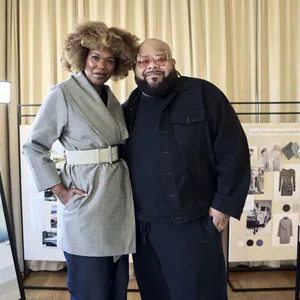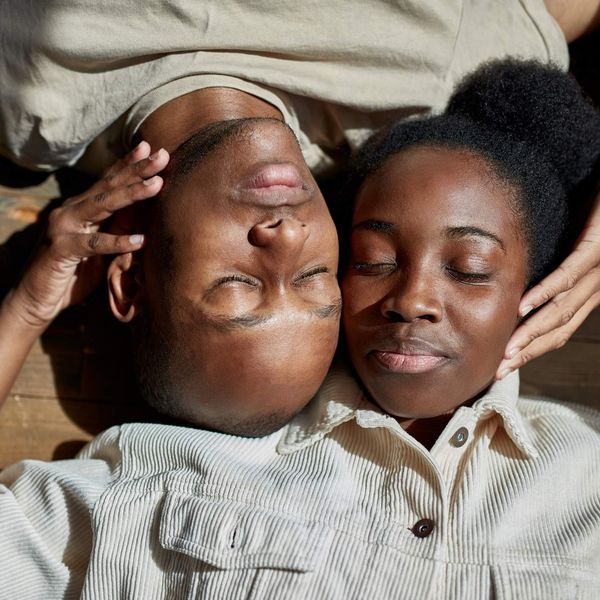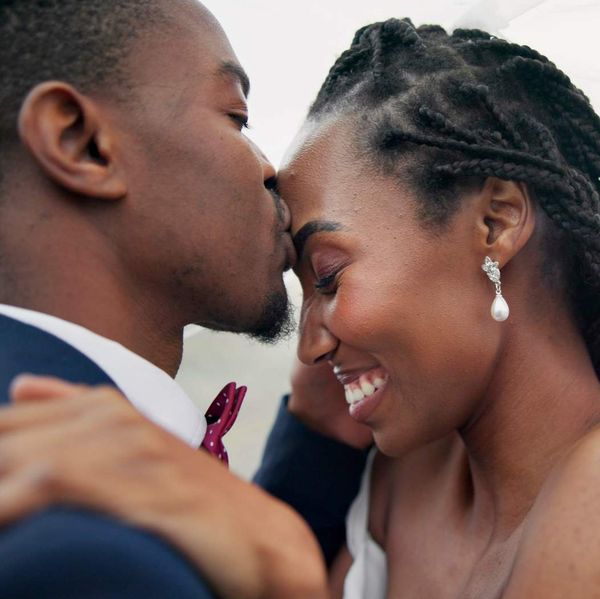I'm sure most of us have heard of the term equally yoked at least once or several times in life—but do we really know what it means? The phrase was founded in the Christian church stemming from scripture stating that Christians and nonbelievers shouldn't be in a romantic union. Being 'equally yoked' begins and ends with how much you and your partner's values and beliefs align. Here is a glimpse of what being equally yoked means from a pastor's and a therapist's lens so that everyone can apply this discernment to their romantic unions.
Being equally yoked from a pastor’s lens:
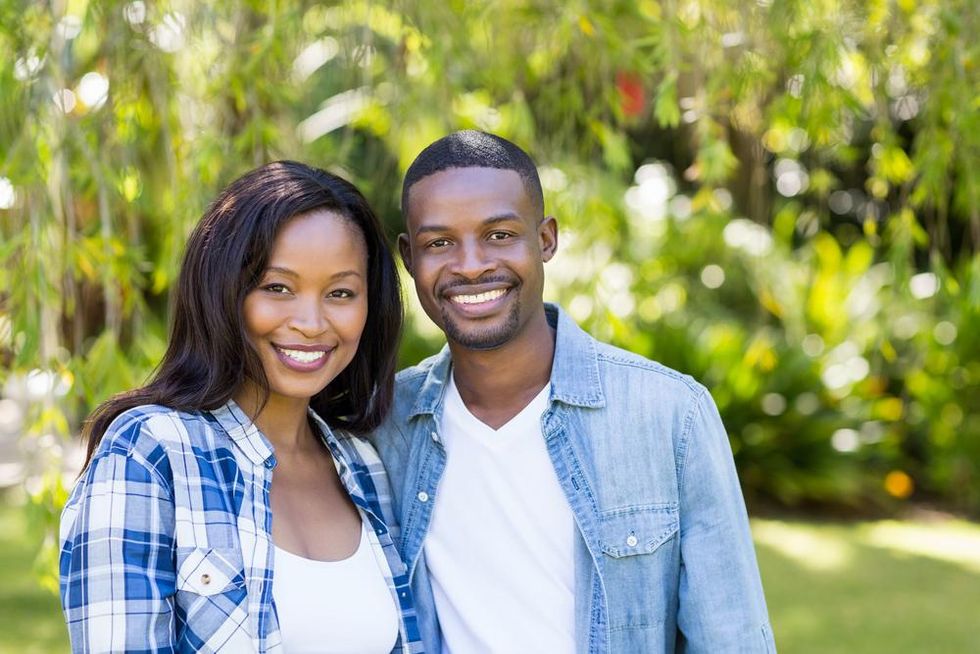
Shutterstock
For believers, the phrase equally yoked is often rooted in spirituality. According to Pastor Malcolm from the Brooklyn-based Pathway To Life Ministries, what equally yoked means is to be joined together. "This means these individuals should be compatible, they're able to agree on most things, and their values are aligned. This is also true in secular relationships, but biblically speaking in 2 Corinthians 6:14 'that we must not be unevenly yoked together with those who do not believe. What fellowship hath righteousness with unrighteousness, and what communion hath light with darkness?'" she conveys. 'My question is, how can we effectively communicate when we are on opposite sides? That is being unevenly yoked!"
So if we're able to dissect equally yoked further, it starts with aligning your faith within your union, and if we don't believe in those same core foundations, it's basically a no-go in the church. But you can be unequally yoked with a believer as well because we aren't a monolith, and God doesn't just prepare the world of men to be your partner for a lifetime. He assigns an imperfect yet perfect man in your life—on His timing, not yours.
"Oftentimes, Christians are engaged in relationships that are not ordained by God. It does not mean that the believer that you like is right for you," Pastor Malcolm states. "My advice is that we seek God in everything that we do. Ask Him to send the right person."
When you and your partner's values are misaligned and you're unequally yoked:
The most essential part of a romantic relationship doesn't lie in a person's appearance (though this is important) or how many followers they have on their socials or how well they dress. It is grounded on you and your partner's shared perspective in the life you want to build together, along with continuously communicating when things are great and when they aren't and what things you're open to compromising and sacrificing.
"On Sunday when she wants to go to church, and he would prefer to hang out with friends at a bar, or just stay home or better yet just not interested in church at all," states Pastor Malcolm. "This is how you know they are unequally yoked."
I'm sure we all may have a friend or family member in what seems to be an unequally yoked marriage or partnership. Imagine the spiritual intimacy she would love to explore with her partner and isn't able to because he doesn't believe in God, doesn't believe in prayer, or is indifferent about reading the bible together. For some households, it works out because each partner respects their differences. But for others, it tears them apart slowly and creates an uphill battle of resentment.
Being equally yoked from a therapist’s lens:
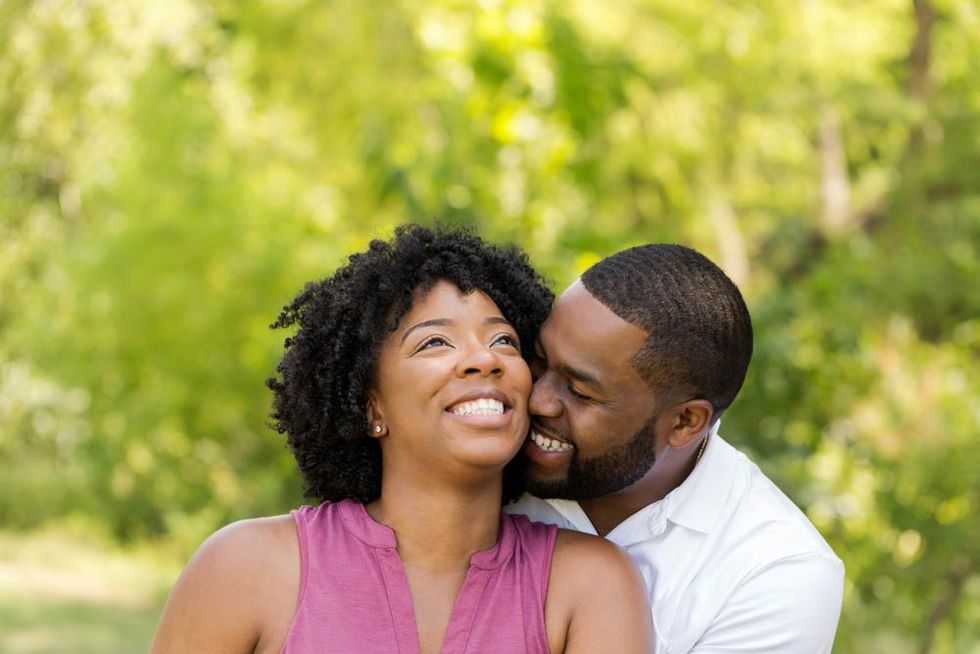
Shutterstock
I also interviewed a therapist to apply to nonbelievers and for anyone like myself that loves to explore the depths of compatibility versus incompatibility in our love lives. I asked licensed marriage and family therapist Kimberly Panganiban, from Choosing Therapy, an online therapy platform, to describe being equally yoked in a non-religious perspective. Her response?
"Being equally yoked (in a non-religious perspective) means that you are with someone that you can count on to work with you as a team. You can trust them to be there for you and to navigate the differences you have well."
Seeing your marriage or partnership as a team makes it easier for you to be more compassionate and understanding with your partner versus withdrawn and indifferent as you would with a competitor. "If you Google equally yoked, most of what you will see talks about being aligned in values, beliefs, and goals (religious or otherwise)," states Panganiban. "In every relationship, there will be values/beliefs/goals that your partner is aligned on, and there will be values/beliefs/goals where you don't entirely match up. This is because you are two different people, and so you will never completely agree on everything."
"The key is finding a partner in which you can live with the differences you have and work together to make those differences feel OK. We all have to decide what differences we can deal with and what we can't. But most importantly, we need a partner that is willing to manage these differences as a team."
Tips for finding a partner who is equally yoked:
The older I'm becoming, the more I'm learning to listen to my spirit and honor what I really want in partnership because ignoring red flags only hurts me most in the long run. I asked Kimberly how she'd advise individuals seeking equally yoked partners for them, what signs we should look into, and what red flags we should avoid. She had some insightful tips to share:
"When looking for an equally yoked partner, you must ask yourself, 'Can I live with the differences we have? Can I trust this person? Is this person committed to the relationship?' If you can answer yes to these three questions, you are equally yoked. If not, it is probably time to move on."
"Where people get into trouble is when they rationalize concerns in the relationship and expect things to change. Most of the time, the problems people face at the beginning of a relationship are the ones they will continue to grapple with so, be honest with yourself early on in the relationship as to whether the differences you have are something you can deal with forever or not. "
The more you know and honor yourself, the more likely you will follow where your spirit or instincts guide you. Finding your equally yoked partner won't be easy, but what makes your significant other 'significant' if you didn't have to go through much to meet them—offering the best you that you can be?
Keep working on yourself; take your time dating to see people's true colors to see if this is your person. Remember, it's the slow and steady that wins the race, and who and what's for you will never miss you.
Featured image by Shutterstock


